I recently got a chance to check out Vampire Therapist, a visual novel about helping the undead cope with their existence. For the record, it’s great and I can’t wait to see more.
Until then, I sat down with the developer of Vampire Therapist, Cyrus Nemati. He was excited to share more details of the game with me and how it came to be.
Vampire Therapist asks the question “How much humanity does a vampire have?”
Hey Cyrus! For the first question, let’s start off easy. What is Vampire Therapist?
Vampire Therapist is what it says on the box (or will, if I get to the physical copy stage)! You play as a vampire therapist to other vampires from throughout history, using real cognitive behavioral therapy techniques in a dark comedy world.
What was the inspiration for Vampire Therapist and how did you come up with the premise?
Oddly enough, Twilight. There’s a scene where Edward Cullen is playing the piano, and we’re supposed to be very impressed because he’s been practicing for 200 years. However, he’s not playing Liszt, he’s playing the sort of thing you’d hear on a hold line. But I asked myself, why should Edward be good at the piano just because he’s had 200 years?
Isn’t that a lot of pressure on someone? What about all the other things he “should” do? With immortality, why not go to Mars? Why not explore the Mariana Trench? Why not cure cancer or write the next great novel? Vampire Therapist hinges on this key question: what happens to human insecurity when death is no longer a concern? That was a springboard to all sorts of interesting stories.

So, Vampire Therapist is a visual novel. What have you added to make it unique and keep people playing?
This is an unusual game to start with, and move away from a lot of visual novel conventions. First of all, I wanted to minimize clicking past a lot of dialogue, so having dialogue that is designed to be challenged was a design choice. In the early game, there’s a more Phoenix Wright structure where you have challenge segments, but once your options open up, the gameplay is much more fluid.
I’m using real historical figures, portrayed through a loving dark comedy lens, and we’ve got a couple of minigames that fit our theme well. Our simulation of mindfulness meditation is quite close to the real thing, and I’m keen to see how people react to it.
Oh, and the voice acting. A game that portrays deep human insecurity has got to do that well, and I’ve assembled a really impressive cast.
It’s mentioned in various places that you worked with real therapists to come up with the proper ideas and terminology for Vampire Therapist. Tell me more about what that entails and how you handled real-world therapy ideas without being offensive.
My therapist consultant and I had to align on hard definitions for cognitive behavioral terms, first of all. I couldn’t write the story without them, since I needed to insert interjection points where characters could be challenged using these terms. This is not the easiest thing.
There’s an in-game journal where Sam, the player character, writes down the definitions of each cognitive distortion along with examples, and we had to make sure those were solid. Then it was a case of going through the script again and again as I suggested cognitive distortion applications, which was not only a challenge for me, but for my consulting therapist as well, since we had to look at these mortal terms in an immortal context.
With immortal beings, human challenges are expanded to be sociological as well as psychological. What would be “normal” the 202 CE is clearly distortive now, so it was an exciting challenge!
As to making sure the therapy isn’t offensive, we approach every situation first with compassion. The characters in Vampire Therapist do bad things and have bad things done to them. They think hurtful things, to themselves and sometimes to others. But we start with compassion and try to figure out where they’re hurting, and go from there.
Vampire Therapist will probably be offensive to defenders of outdated systems of dominance that rely on reality distortion fields to survive, but I’ll be honored to be disliked by them.
Makes a lot of sense! Would you say that the real-world terms and confines helped or hindered working with vampires?
As I mentioned, there was some challenge in the sociological aspects of immortality. However, for the most part, it wasn’t a problem. One of the pieces in my style guide is that we refer to non-vampires as “mortals”, not “humans”, because vampires are humans, so the same insecurities and distortions apply to them.
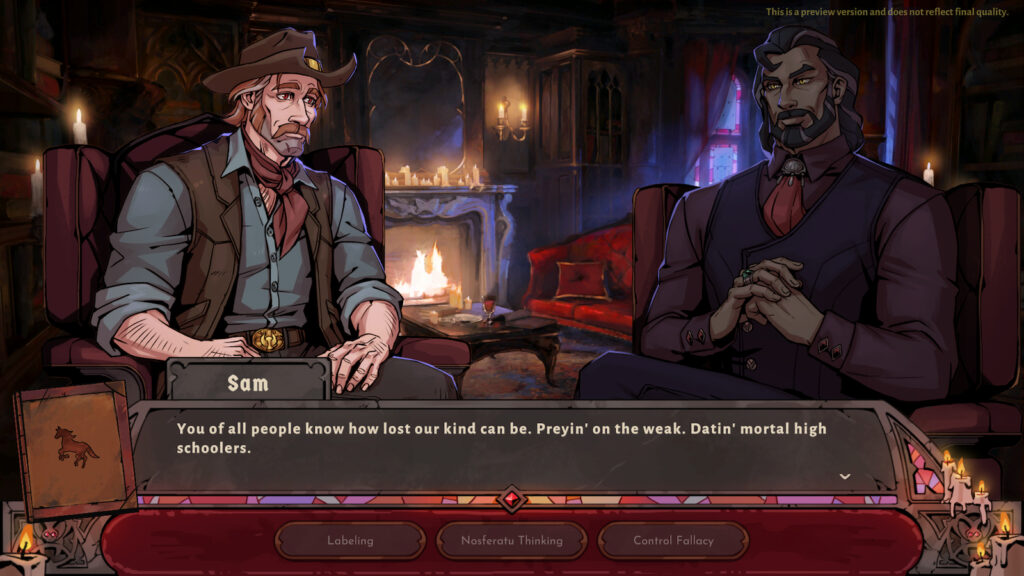
The humor is great and helps break up the more serious therapy stuff. What inspirations led to this particular style of comedy?
Thank you! Like most humorists, I appreciate pain a little too much. I’ve always been drawn to “this is bullshit” type comedy, so Mr. Show was a strong early influence.
I feel like Gen X saw through a lot of bullshit, but alas, they were known as the slackers. Not to sound too fancy, but you can draw a pretty direct line from Voltaire’s Candide to Vampire Therapist for the same reasons. Candide is all about willful ignorance — looking at a broken world and saying “This is great and we should be proud of what we’ve created!”
Of course, What We Do in the Shadows is great for vampire fish-out-of-water comedy, and I’ve always loved Mel Brooks comedies for the way he really brings out the banality of evil. If we view history’s monsters as insecure, small-minded men (usually), then we can get into their heads and have a laugh, and even a bit of compassion. Terry Pratchett is another key influence, as he knew how to smooth some very dark edges of society with that same compassion.
In the full version of Vampire Therapist, what kinds of things should we expect on top of everything that can be found in the demo?
The gameplay takes a distinct turn after each client’s first session. Expect much more fluid conversation, replayability thanks to the broad list of distortions you can make use of, a whole side story that introduces another vampire profession, more necks to bite, more minigames, and more fun in your coffin.
I didn’t set out to produce so much, but the game needed what it needed!
Are there any plans for future Vampire Therapist content, post-release?
Yes, I have a content release planned that will dig into couples therapy. I’ve had a fun vampire idea that’s been germinating for a while that I’m keen to write once the main game is ready to ship!
Let’s talk about you. How did you get into making games?
It all goes back to voice. My favorite toy as a kid was my tape recorder. I remember how excited I was playing the “talkie” of Indiana Jones and the Fate of Atlantis at CompUSA.
Being an actor was not a thing in my family’s culture, though, so I attempted and failed at an education in law, floundered for a while in community theatres, and had a whole career in public policy communications before throwing it away to go to California so I could give the voiceover thing a shot.
I like to say with the industry in the state it’s in, voice actors are the smart ones, because at least they know they won’t have a job after the game releases. But it gave me a nice seat at the table, and I started contributing to games I was performing in as a writer.
I see acting and writing as very much using the same muscle. It’s kind of a shortcut when you “hear” what a character sounds like as you’re writing them.
I quit my day job in games after a failed unionization effort that broke something in my soul, and learned how to program so I could run a studio with my ethos. And hopefully, it will work out!
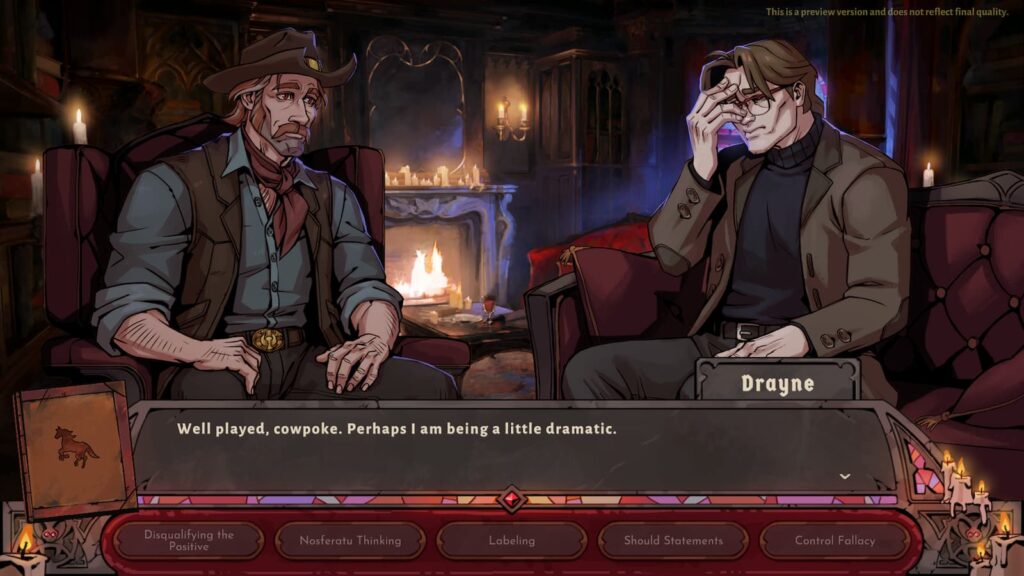
Tell me the process of making Vampire Therapist and the work that went into the development cycle.
I’m a pretty new programmer, so the first step was learning how to do that! Since I was operating alone for much of production, I didn’t have many guardrails and tried out ideas for the main gameplay loop in-engine with temporary assets. I did all my writing in-engine too, which is not a good thing to do.
From there it was alternating between hardcore development sprints and hardcore writing sprints, and re-learning to code after the latter.
Once I got my art team assembled, the world and characters were pretty well realized, so we were able to jump in and start creating assets. I’ve got an incredible team that picked up on the vision right away.
They’ve only been on the project for about 8 months and mostly part-time, so we’ve gotten a lot done in a short time. The prep was painful but worth it!
If you had a blank check, what would be your dream game to make?
Oh gosh. Does it need to be a game I’m capable of making? If not, I’d do an audio-driven VR stealth game. Like a Thief reboot, except not sad.
If it’s one I’m capable of making, I don’t actually want a big budget. All big checks do is kill game studios! Vampire Therapist’s budget is so modest I don’t hit certain production thresholds, but I hope that means I’ll make enough to keep making games.
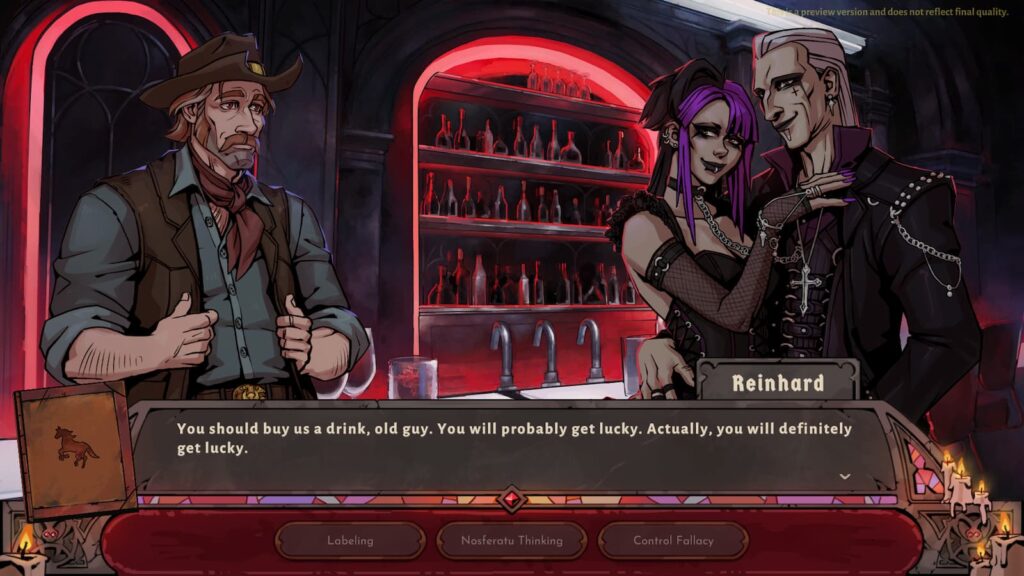
Last question: Who are you most like in What We Do In The Shadows and do they yell “BAT!” when they transform?
I could say Nandor, because of my Persian background, but I’m a different kind of fool — more like Viago, forever the hopeful fool. But hell yes I would cry “BAT!!”, because I would want everyone to see how cute I am with my little bat body and adorable teeth.
Thank you so much, Cyrus, for taking the time to talk about Vampire Therapist. I’m excited to sink my teeth into the full release.
Vampire Therapist will be out on June 18th, 2024. If you haven’t yet checked out my demo preview, you can find it here on Comfy Cozy Gaming. You can also wishlist the game on Steam.



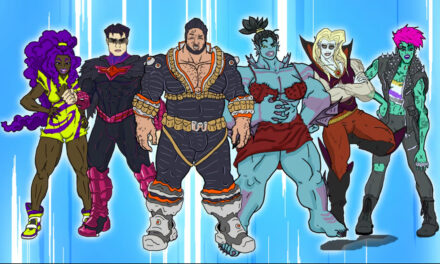

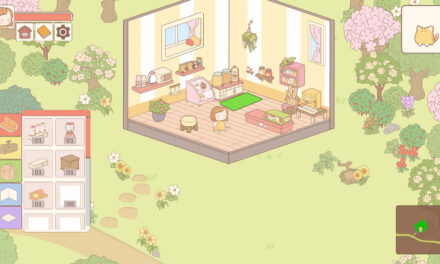
Trackbacks/Pingbacks